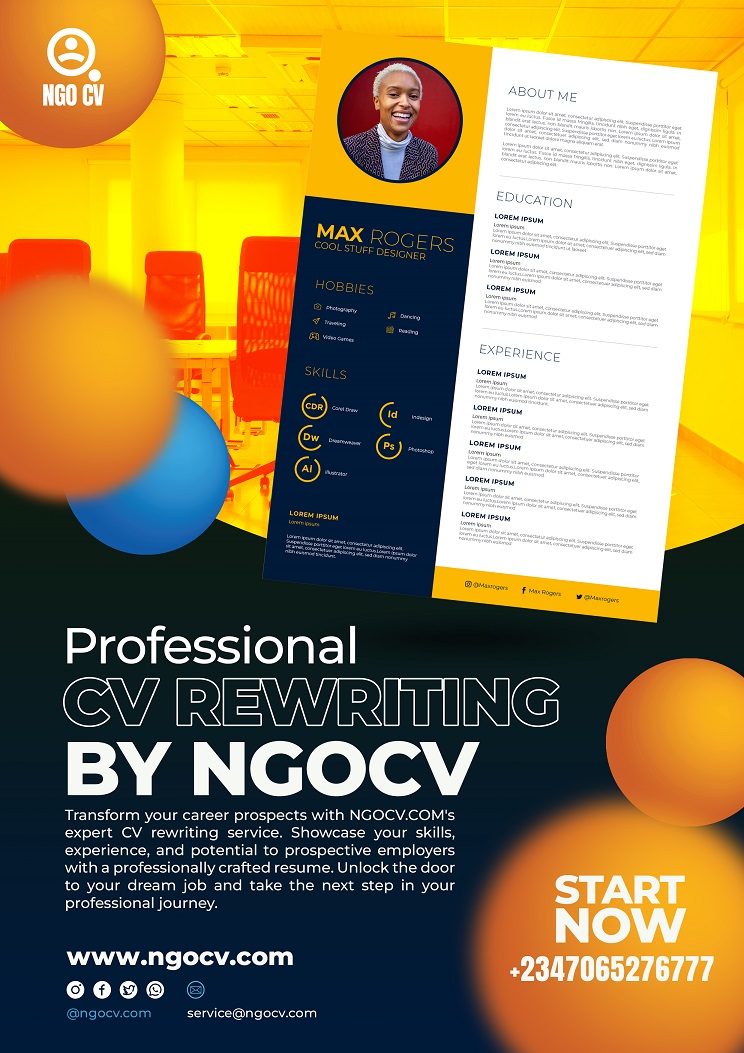Background
Christian Aid (CAID) is a humanitarian and development, Faith-based non-governmental organisation that insists that the world can and must be changed to one where everyone can live a full life, free from poverty. CAID work globally for profound change tackling the root causes of poverty, empowering people to have a brighter future and creating enabling environments for communities to exercise their capacities. CAID operates across 39 countries worldwide and has extensive experience in managing and monitoring emergency relief and rehabilitation actions both with local partners and directly.
CAID has been operational in Nigeria since 2003 in the development sector being active in governance and health programming. CAID focus regions for programming since 2003 have included North Central and Southeast (Anambra, Enugu, Kaduna, Edo and Benue states as well as the federal capital territory). Following the onset of armed conflict in the country, in 2015 CAID Nigeria began its humanitarian response across Northeast Nigeria and now has a presence in locations across Adamawa, Gombe and Borno states. CAID Nigeria uses a hybrid model of working through direct implementation and implementing partners. This approach brings projects closer to communities, encourages local ownership and participation, and also builds the capacity of local organisations and communities to be more resilient in tackling their own health and social problems which ensure sustainability. With a vision for a “just, equitable and peaceful Nigerian society in which poverty has been eradicated, and every person is empowered to live life in all its fullness”, Christian Aid Nigeria is currently operating within 11 states in the country, across three thematic areas –Health, Democracy and Accountable Governance and Humanitarian and Sustainable Livelihood, with gender and inclusion principles cutting across all thematic areas.
CAID Humanitarian response in Nigeria has been a key priority for the country programme since 2015, intervening in the North-East across Adamawa, Gombe and Borno States reaching more than 330,000 IDPs with immediate Lifesaving Food Assistance, Livelihood, WASH, Essential non-food items, Nutrition, SBCC and Protection Mechanisms. In this regard, CAID has earmarked its humanitarian intervention for an evaluation to gauge the journey so far to plan and facilitate its future endeavours properly.
Rationale and Objectives of the Evaluation
Christian Aid is committed to assessing and improving the quality and accountability of its humanitarian programme in line with its quality standards which are aligned with the core humanitarian standards (CHS). Therefore, to be able to make evidence-based decisions, following years of contribution to the humanitarian interventions in conflict-affected regions of Nigeria, Christian Aid is seeking to conduct an evaluation of its humanitarian response in Nigeria. This study will aim to provide an overall assessment of the performance of its humanitarian interventions from 2015 to date, with a view to highlighting successes, opportunities, challenges and lessons learnt. This evaluation will seek to assess CAID’s humanitarian workstream against the Development Assistance Committee (DAC) criteria for evaluation across its intervention sectors, donor sphere and partnerships. Therefore, the specific objectives of the evaluation include,
I. to assess CAID humanitarian programming from 2015 to 2022 based on the DAC evaluation criteria (Relevance, Effectiveness, Efficiency, Coherence, Impact and Sustainability),
II. to assess different CAID partnerships in its humanitarian interventions and their impact on programme outcomes,
III. to highlight areas of strength in CAID humanitarian programming from 2014 to 2022 and
IV. to provide key recommendations and areas of expansion for improved CAID humanitarian programming
Evaluation Scope
This evaluation is to cover locations of Christian Aid humanitarian response across Northeast Nigeria from the years 2015 to 2022. This includes all CAID humanitarian interventions spanning across LGAs within Borno, Adamawa and Gombe states.
Evaluation methodology
This evaluation will employ an innovative method that will use a mix of systematic desk reviews and interviews with key stakeholders who have engaged with CAID humanitarian programming to meet study objectives. Desk reviews will encompass CAID humanitarian project documents, previous evaluation reports, strategy documents, humanitarian publications, donor reports and other relevant files. While stakeholders and locations to be covered by the key interviews will be selected through a systematic sampling technique that can generate information from minimal samples.
Key Deliverables for the Consultancy
The following are the deliverables that are expected to be fulfilled by the successful consultant.
• Inception debriefing session with CAID MEAL and management team which will detail evaluation questions, evaluation matrix, data collection tools and work plan.
• Engagement, facilitation and carrying out evaluation activities according to technical proposal and agreements from inception debriefing.
• Evaluation report (draft and final, following reviews) that follows standard reporting formats and contains all necessary sections (Cover page, table of contents, executive summary, background information, methodology, limitations and challenges, findings, conclusion and recommendations).
• Final presentation of key findings and recommendations from the evaluation.
Key Deliverables for Christian Aid
The following are the deliverables expected to be provided by CAID to ensure smooth completion of the evaluation.
• Provision of funding for smooth activities according to the final agreed budget
• Provision of access to all documents and files that will be included in the systematic desk review.
• Provision of contacts and identities of locations to be mapped and sampled for interviews.
• Provide project management support to ensure compliance with policies and procedures
Expected Outputs from the Consultancy
1. Final copy of the evaluation report that is consistent with data obtained through valid and verifiable processes. The report must also be in standard format outlined and agreed upon.
2. Presentation of summary of findings and recommendations at a close-out meeting.
3. 2-3 page summary of key findings, lessons and recommendations as obtained in the full report.
Quality assurance
The Consultant is responsible for data quality, validity, consistency, and accuracy and to submit a well-structured report written in English language. If these standards are not met, the consultant will, at his/her own expense, make the necessary amendments to bring the reports to the required standards. The Consultant is expected to maintain the confidentiality of the data collected through the study. The project team will be the sole owner of the data and the study outputs and the consultant should get written permission from the project team for using the study result or data for any other purposes.
Ethical considerations
In engagement with primary data collection and also handling CA information, the following must be observed.
1. Adequate level of confidentiality should be ensured
2. Study participants should not be subjected to harm in ways whatsoever
3. Respect for the dignity of research participants should be prioritised
4. Full consent should be obtained from the participants prior to the study
5. The protection of privacy of the study participant must be ensured
Lines of Reporting
The Consultant will work closely with the project leads and report to the project team through the Senior Programme Coordinator, MEAL. The Consultant MUST get approval for the work plan, evaluation methodology and tools from the Senior MEAL Coordinator before initiating the fieldwork. The Consultant shall organise weekly progress review meetings over skype or in person with the Project MEAL and Programme representative to update the progress of the work, for feedback, and to discuss and address any challenges arising.
NOTE:
This ToR does not represent a contract agreement with CA nor does it represent an obligation by CA to engage anybody as a consultant on this task. All contractual agreement only becomes binding after the signing of a contract agreement between CA and the selected consultant or his/her representative(s)
Duration for the Consultancy
This consultancy is expected to last for 20 working days (1st – 30th of November 2022 (1 month).
Timeline for deliverables
1) Debrief with the project team: on the 1 st week of November 2022. This exercise will involve:
– discussion between the consultant and the project team on the methodology and work plan,
– sampling criteria, proposed key informant samples, data collection tools and logistical arrangements
2) Draft report: by November 24th 2022.
3) Final report: by November 30th 2022.
Consultant competencies and required skills
The consultant must be available in the State to carry out the assessment. Christian Aid is seeking an individual with:
• A university degree (minimum master’s degree level) in public health/development studies /international relations / social science/ political science or other relevant area is required.
• Previous demonstrated experience and knowledge with food security, nutrition, WaSH and livelihood sectors in humanitarian settings.
• Have experience in organizing/leading discussions, facilitating a variety of events, and workshops; working with government, local authorities, and community groups as well as providing analysis and reporting.
• Demonstrable experience in producing high-quality, credible research/assessments (sample report of such is required).
• Excellent spoken and written English (knowledge about the target state language is an advantage)
• Understanding and experience in working with state and non-state actors (at all levels) and international organizations
• Ability to show evidence of prior activity i.e. research or trainings over a period on humanitarian response
• Knowledge of research and monitoring and evaluation methodologies, including quantitative and qualitative
• Knowledge of governance and conflict programming (desirable).
Excellent computer skills
How to apply
Applications should include the following.
– A technical proposal outlining the introduction, methodology (Including methods to meet objectives and evaluation questions to answer each DAC criteria), expected outcomes, and conclusion.
– A profile of the consultant/company with demonstrated relevant registration, qualifications, and experience in handling similar assignments in Sub-Saharan Africa.
– Budget for consultancy
Applications should be sent to [email protected] on or before 4 pm on Friday, 2nd September 2022




